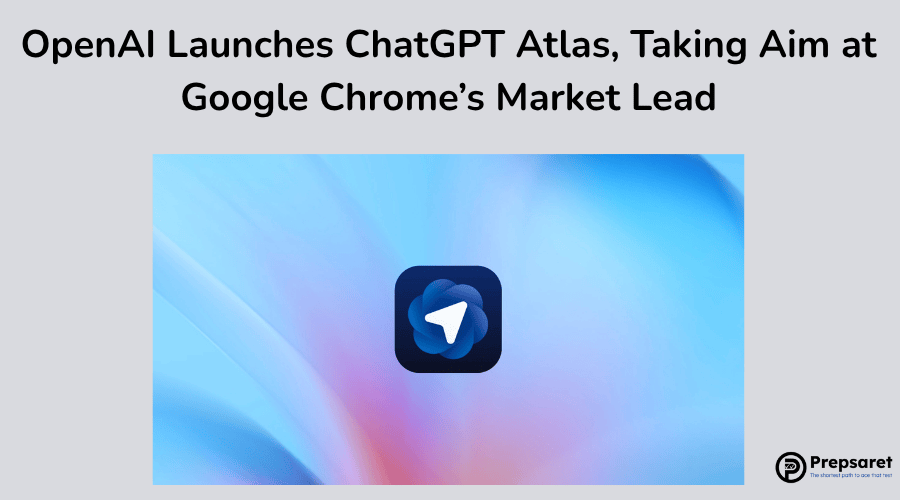OpenAI on Tuesday introduced ChatGPT Atlas, an AI-driven web browser centered around its flagship chatbot—marking the company’s bold entry into the browser wars and a direct challenge to Google Chrome’s dominance.
With over 800 million people using ChatGPT each week, the move highlights OpenAI’s effort to expand its presence in users’ digital activities by gathering insights into browsing habits.
Analysts say the launch could further speed up the shift from traditional keyword searches toward AI-powered conversational search, where users get summarized, synthesized answers instead of a list of links.
Following the announcement, shares of Alphabet, the parent company of Chrome, fell by 1.8% during afternoon trading.
Reuters had previously revealed OpenAI’s plans to develop its own browser.
Atlas now joins an increasingly competitive AI browser landscape that already includes Perplexity’s Comet, Brave Browser, and Opera’s Neon—each integrating tools designed to summarize web pages, automate form-filling, and even generate code.
Related story: OpenAI, Oracle, and SoftBank to Build Five AI Data Centers Under $500 Billion Stargate Initiative
A Browser That Thinks and Acts for Users
ChatGPT Atlas allows users to activate a ChatGPT sidebar in any browsing window, giving them the ability to summarize articles, compare products, or interpret website data instantly.
A new “agent mode,” available exclusively to paid subscribers, takes the experience further: it enables ChatGPT to interact directly with websites to perform complex tasks from beginning to end—such as trip planning, research, or online shopping.
During a live demonstration on Tuesday, OpenAI developers showed how ChatGPT could locate a recipe online and automatically purchase the ingredients.
The chatbot seamlessly navigated to the Instacart platform, selected the necessary items, and added them to the shopping cart within minutes.
Currently, the browser is accessible globally on Apple’s (AAPL.O) macOS, with versions for Windows, iOS, and Android expected to follow soon.
A Growing Rivalry with Google
Since the debut of ChatGPT in late 2022 under CEO Sam Altman, OpenAI has transformed the tech industry, pushing giants like Google and emerging rivals such as Anthropic to adapt quickly.
Google has been overhauling its search engine to accommodate evolving user behavior.
Depending on a query, users may now see an AI overview—a chatbot-style summary—alongside traditional search results. Recently, Google also integrated its Gemini AI model into Chrome for U.S. users, with plans to expand to iOS.
Despite intensifying competition, Chrome remains dominant, commanding 71.9% of the global browser market in September, according to StatCounter. Still, analysts believe OpenAI’s entry could disrupt online advertising.
“Integrating chat into a browser is a precursor for OpenAI starting to sell ads, which it has yet to do so far.
Once OpenAI starts selling ads that could take away a significant part of search advertising share from Google, which has around 90% of that spend category,” said Gil Luria, analyst at D.A. Davidson.
Read next: Amazon Web Services Restores Operations After Massive Global Outage

